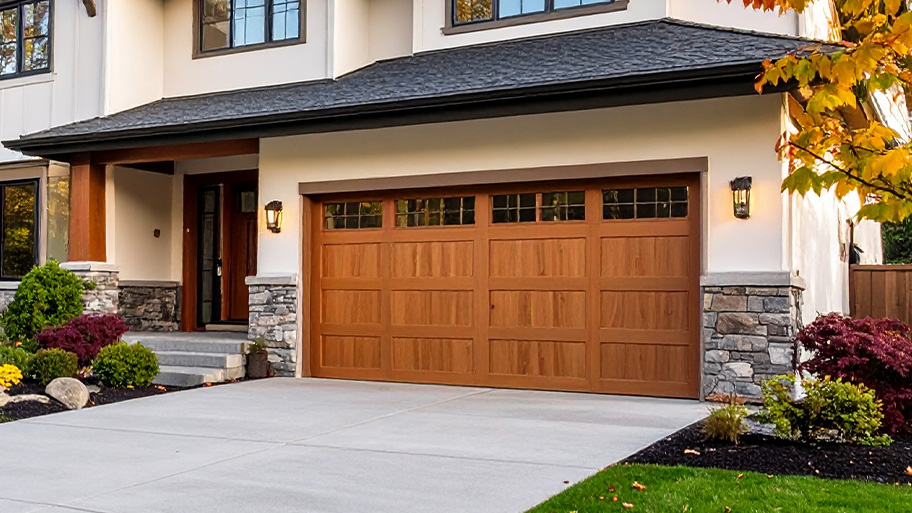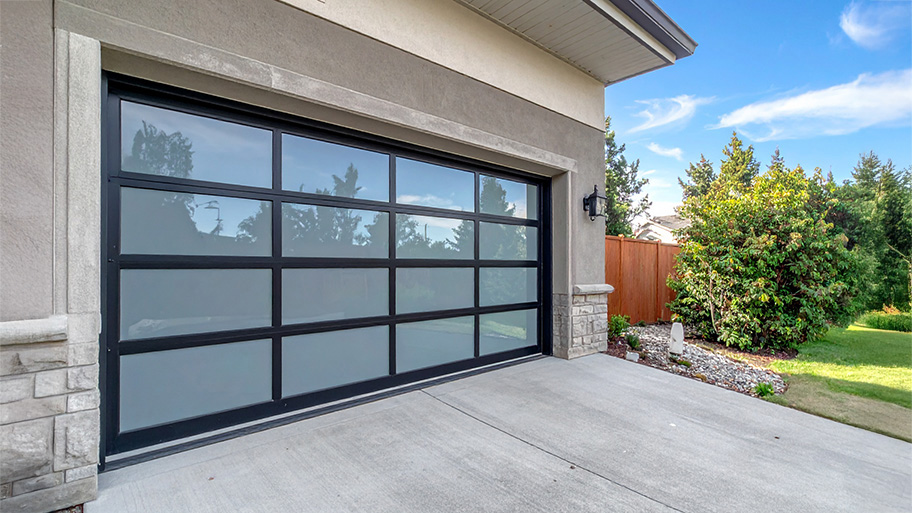
Your home's garage door cable repair cost depends on several factors, including the cost of other damage that may be the result or the cause of the failure.
Treat your garage to a glow-up with a professionally installed or repaired garage door


A new garage door can do wonders when it comes to upping curb appeal. If you’ve ordered a new door or just need a few repairs on your existing door, you may consider DIY-ing it, but for jobs like this, hiring a garage door pro near you is the way to go.
You just ordered a new garage door and are probably chomping at the bit to get installation underway. If you’re a seasoned DIY-er, it may be tempting to install a new garage door yourself, but there are a host of reasons to call in a local pro for this project.
Replacing garage doors and garage door springs can be dangerous. Garage doors are very heavy and the springs are under a lot of tension. A garage door pro has the tools and experience to do this project safely.
Your new garage door most likely came with a manufacturer’s warranty, which is a huge plus. They’ll protect you if your door is damaged or malfunctions during a certain amount of time. Warranties also protect you against improper installation—but only if a professional garage door installer installs the door.
If you attempt to install it and either the door or your home is damaged, you’re on the hook for the repair bill, and your warranty is no longer valid. That means even if you hang it perfectly but something goes wrong down the line, like a manufacturing defect, the company won't replace it.
If your garage door needs repair, whether to the door itself or the motor or electrical components, a local garage door technician can take a look at the problem and give you an estimate on repairs. In many cases, repair work done by garage door pros is guaranteed, so if you have a problem after the repair is complete, they’ll come back to provide service at no extra charge.
Unless you are 100% comfortable working with electricity, installing a new garage door is best left to a pro. A local garage door installer will have the knowledge and experience to ensure your installation is safe and up to local and state codes.
Also, a botched installation could lead to damages down the road. Ensuring that both the electrical and the mechanical sides of things are correct can provide peace of mind when it comes to your garage door functioning as it should.
When you hire a professional garage door installer, you can rest assured knowing your garage door will function effectively. A local garage door professional is familiar with the steps involved in garage door installation, which means fewer glitches and problems. And many professional installers guarantee their work. So if you have a problem with your door, they’ll come back to your home to assess the door and make adjustments or repairs as needed.
If you need to hire a professional to repair this essential home feature, start by searching for a local garage door repair pro in your area. To find the best pro for your specific project, look for local pros who specialize in the necessary repair, such as spring replacement or sensor misalignment. When talking with potential pros to hire, be sure to ask about their level of experience with this type of repair, their hourly or project rate, and availability. Consult at least three garage door pros in your area to find the best fit for your budget and project.

Working with electricity is also dangerous. Wiring your garage door isn’t something to take lightly and should only be performed by a professional or someone with years of electrical experience.
Given most common garage door repair costs fall around $300, it doesn’t hurt to call a pro and get a quote prior to tackling the problem yourself.
While your favorite handyperson might have adequate experience to complete a garage door installation or repair, your warranty may be invalidated if the job isn’t performed by a licensed professional.
For all the same reasons above, a handyperson lacks the specialized expertise and experience in garage door repairs. Garage doors require specialized tools and equipment that your handyperson may not have immediately on hand. You may end up paying almost the same amount (or more) to cover those additional costs. Because of that (and the safety risks), it’s better to hire a specialized professional for added peace of mind.
Before getting started, it’s worthwhile to speak with up to three garage door professionals to reach a final decision. When speaking with a garage door pro, ask them the following questions:
How long have you been repairing garage doors?
Can you handle both mechanical and electrical issues?
Can you repair garage doors and electronic remotes?
Are you licensed and insured?
How do you charge for repairs? Is it hourly or per job?
Do you offer any warranties or guarantees for garage work?
How soon can you start? What is the timeline?
Can you provide any references?
Can you provide advice on maintaining the garage door to prevent future issues?
Do you offer recurring services like garage door tune-ups?
From average costs to expert advice, get all the answers you need to get your job done.

Your home's garage door cable repair cost depends on several factors, including the cost of other damage that may be the result or the cause of the failure.
.jpg?impolicy=leadImage)
This guide shows you what you can expect for garage door roller replacement cost if your rollers are sticking or screeching.

Replacing a garage door is necessary to add security and value to your home. Learn how each door type affects the total cost of this project in Columbus, OH.

Explore the different types of garage doors for your home, including their durability, cost, and the pros and cons of each option.

Based on its quality and design, your garage—and its doors—can increase your home’s value. Here’s what you need to know about your garage door alternatives.

Sizing garage door springs requires accurate measurements and the garage door weight. Keep reading to learn how to size garage door replacement springs.